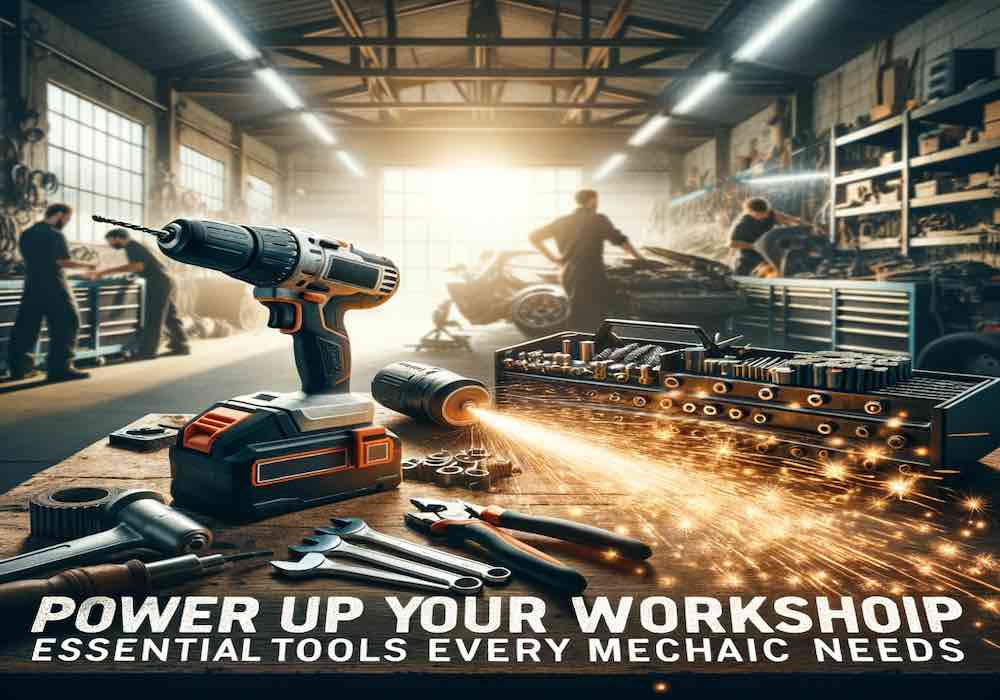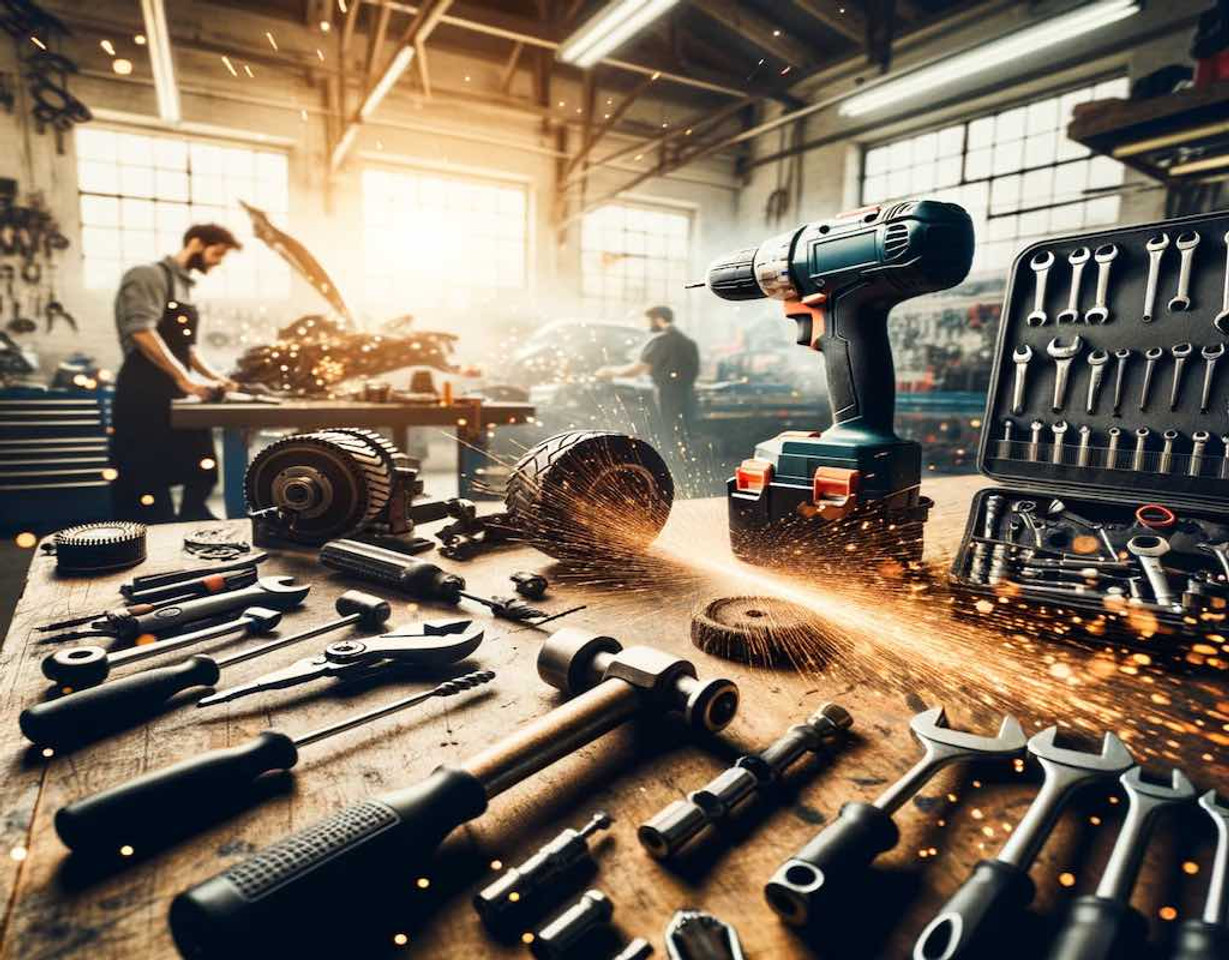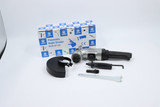Essential Power Tools for Mechanic Workshops: Power Up Your Workshop with These Essentials
Essential Power Tools for Mechanic Workshops
The mechanic workshop of today is strikingly different from its predecessors. Through time, as the automobile and machinery industries have evolved, so have the tools used to service them. This evolution has been significantly driven by the rise of "mechanic power tools." These tools have revolutionized how mechanics operate, making tasks quicker, more efficient, and often more precise. As such, equipping one's workshop with the right "essential power tools" has become not just a preference but a necessity. Below video shows top 5 auto mechanic tools
Why Power Tools are Indispensable in a Mechanic Workshop
Modern mechanics operate in a fast-paced environment where time is money and efficiency is paramount. This is where "power tools" come into play. They drastically reduce the time to perform routine tasks, leading to heightened workshop efficiency and productivity. Imagine the hours saved when using a power drill instead of a manual one.
Furthermore, as we journey back in time, it's evident that manual tools dominated the scene. Mechanics relied heavily on their physical strength to get the job done. However, with the transition to power-driven solutions, there has been a significant reduction in manual labor, errors, and fatigue. The manual tools, while still essential in some tasks, have had to make space for their power-driven counterparts, which promise speed, precision, and consistency.
Top Essential Power Tools Every Mechanic Workshop Needs

Power Drills and Impact Drivers
Power drills and impact drivers are two of the most fundamental tools in a mechanic's arsenal.
Power Drills:At its core, a power drill is used for drilling holes into different materials or fastening various materials together with screws. In a mechanic workshop, this could mean anything from making space for a new component to securing parts together. Their versatility and speed make them invaluable.
Impact Drivers:While they might look like your standard drill, impact drivers are specialized tools designed to drive screws and bolts. What sets them apart is their ability to deliver robust, sudden rotational and downward force, making them particularly useful for tasks that require a lot of torque, such as loosening large bolts or nuts.
Differentiating between these two is vital. While both can seem similar, they serve unique purposes. Power drills are best for tasks that require precision, like drilling. Impact drivers, with their high torque, are perfect for heavy-duty tasks requiring more power than precision. Knowing when to use each can significantly impact the outcome of a task.
In the dynamic world of mechanic workshops, staying updated and equipped with the right tools is not just beneficial; it's imperative. As we've explored, power tools, mainly drills and impact drivers, are pivotal in shaping this modern-day mechanic landscape. The future is powered, and it's essential to be plugged in.
Electric Wrenches and Ratchets
Stepping into a mechanic's workshop, one can instantly recognize the humming and buzzing of electric wrenches and ratchets. These power tools have fundamentally transformed how mechanics approach disassembly and assembly tasks.
Electric Wrenches:These are powerful tools designed to provide torque to turn nuts and bolts without the exertion of manual force. With a trigger press, they can tighten or loosen bolts within seconds. This rapid action can drastically speed up tasks, especially when dealing with machines that have numerous bolts.
Electric Ratchets: While similar in purpose to electric wrenches, ratchets provide more precision. They're particularly useful in tight spaces where a full wrench rotation isn't feasible. With their motorized mechanism, electric ratchets eliminate the constant repositioning that comes with manual ratcheting, making the task more efficient.
Both these tools offer significant advantages over their manual counterparts. Not only do they reduce the time taken for tasks, but they also reduce the physical strain on the mechanic, leading to a more ergonomic and efficient working environment.
Angle Grinders
Another essential power tool in a mechanic workshop is the angle grinder. Known for its versatility, the angle grinder is used for cutting, grinding, and polishing tasks. Whether cutting through metal sheets, grinding off rust or old paint, or polishing surfaces to a smooth finish, the angle grinder proves invaluable.
However, with great power comes great responsibility. Angle grinders are potent tools, and if not handled with care, they can be hazardous. Always use them with both hands, ensure that the workpiece is well-secured, and always wear protective gear, including safety goggles and gloves. A little caution can prevent potential injuries and ensure the safe and efficient use of the tool.
Air Compressors and Pneumatic Tools
Air compressors, often the heart of a mechanic workshop, compress air to generate power. This compressed air can then be used to operate various pneumatic tools. From air drills to paint sprayers, the versatility of air compressors is unparalleled.
Pneumatic tools, powered by air compressors, offer several advantages. They are generally lighter than their electric counterparts, often more powerful, and less prone to overheating. In a mechanic's world, where precision and power are crucial, pneumatic tools often become the preferred choice.
Whether for inflating tires, powering a sandblaster, or operating an air hammer, combining an air compressor with the right pneumatic tool can vastly improve the efficiency and scope of operations in a mechanic workshop.
Ensuring Safety When Using Mechanic Power Tools in the Workshop
In the realm of mechanic workshops, the allure of power tools is evident. They boost efficiency, reduce manual labor, and produce cleaner results. However, with great power comes great responsibility. Mechanics must prioritize safety when using these tools. This includes not only wearing appropriate safety gear—like gloves, goggles, and ear protection—but also ensuring that these tools are regularly checked and maintained. Consistent maintenance not only elongates the life of your tools but also safeguards against potential hazards, ensuring they function optimally and safely every time.
Investing in Quality over Quantity
While the market is flooded with many tools, the mantra for mechanics should be "quality over quantity, because quality really matters" Instead of hoarding many tools, investing in high-quality, essential power tools can make all the difference. These durable and efficient tools might come with a higher upfront cost, but their longevity and reliability will save you from frequent replacements and repairs in the long run. It's an investment that pays dividends through consistent performance, reduced downtime, and trust from satisfied clients.
Conclusion
The advancement of technology in the mechanic industry, especially in the realm of power tools, has been nothing short of revolutionary. These essential power tools, when used responsibly and chosen wisely, can be game-changers for any mechanic workshop. And as technology continues to evolve, it's an exciting time to be in this field. Keeping an eye on emerging power tool technologies will ensure that mechanics remain on the cutting edge of their profession.
Is your workshop equipped with the latest and most efficient power tools? If not, now is the time to evaluate and upgrade. Share your experiences, recommendations, and stories with us. For those looking to revolutionize their workshop with top-tier tools, visit Tend Industrial Supplies or email us at sales@tendsupplies.com. Your workshop deserves the best, and we're here to help you achieve just that









